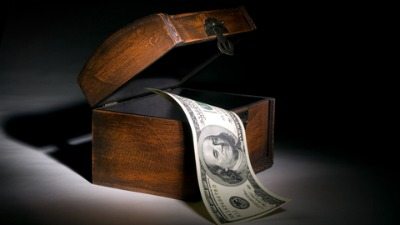 As issues surrounding finances continue to arise, the need for trained professionals who are experts in both accounting and legal matters will likely grow. A forensic accounting firm will help clients stop fraud, recover assets and more during civil disputes or investigations.
As issues surrounding finances continue to arise, the need for trained professionals who are experts in both accounting and legal matters will likely grow. A forensic accounting firm will help clients stop fraud, recover assets and more during civil disputes or investigations.
Forensic accountants possess a variety of skills, which include the ability to analyze financial statements and unwavering persistence in pursuing evidence through multiple channels.
Forensic accounting is different from standard accounting as these professionals are trained to act in both accounting and legal settings. If you've never hired a forensic accounting firm, you may be unfamiliar with the cases or situations that usually prompt an investigation, but there are factors that will affect how well forensic accountants will be able to best make the case for their clients.
Why should I start an investigation sooner rather than later?
Although forensic accountants may have years of experience, investigations - especially into complex crimes like fraud - will take time. Since a forensic accounting firm will need to prepare and gather documents such as financial statements, electronic records and other forms of communication, it is essential that you begin the investigation as soon as you can. In scenarios where a client wants an investigation into potential crimes or instances where another party is actively hiding information, they may attempt to destroy or conceal evidence that will show they committed fraud or deceived others.
Taking immediate action when you suspect fraud, other financial crimes or disputes involving assets will help preserve any evidence that may be hard to find later on. As time is of the essence, a forensic accountant may have to race to locate documents and recover assets that were transferred to another party or account.
What are the benefits of a forensic accountant?
By having a forensic accountant on your side, you are more likely to gather the evidence and support for even the most difficult cases and investigations. An accountant from a forensic accounting firm is trained to recognize discrepancies and errors in financial documents that could indicate omissions and wrongdoing. Professionals specializing in this field have a unique combination of skills that make them well-suited to perform investigations and provide litigation support. While clients and businesses may be knowledgeable about finances, a forensic accountant has in-depth expertise in many areas, including accounting principles, legal and courtroom procedures and criminal behavior.
While forensic accountants are known for their ability to apply financial analysis techniques to massive amounts of data, they also have good communication skills, which is necessary to connect with their clients. After analyzing data, forensic accountants will prepare reports based on their findings to present to clients. In addition to handing over their findings, accountants can also provide expert testimonies in court.
Here are a few instances when you might hire a forensic accounting firm:
Criminal Matters
As part of their risk assessment, companies should account for fraud, which can occur at any business size. With their sharp investigative skills and eye for details, a forensic accountant is often hired to help businesses detect fraud in the workplace even as others attempt to conceal their actions. Clients tend to hire a forensic accounting firm when they suspect fraud or theft in the workplace. For example, companies can hire a forensic accounting firm to look into whether employees are embezzling money.
Although regular accountants might trip over inaccuracies with client-provided documents or company finances during an audit, a forensic accountant will go one step further and look for anomalies in financial records that might prove suspicions of crime. Not only do these accountants anticipate criminal behavior, they can trace and recover assets that may have been hidden or lost during a crime.
Litigation Support
With their high level of legal knowledge, forensic accountants are often called on to prepare evidence for cases where there are claims of financial losses or damages. A forensic accountant will quantify financial losses and perform a forensic analysis to determine how much damage was sustained because of an adverse action. For example, fraud could result in companies losing revenue, a situation that may require a forensic accountant to look over financial statements to assess the damage. They will then have to calculate these losses and prepare their findings before this information is presented in court or submitted to the insurance carrier.
Shareholder Disputes
In cases where they are disagreements between key leaders in a company, a forensic accountant can help with conflict resolution by quantifying and reporting information needed to settle disputes. Disagreements between shareholders about finances usually demand an unbiased party, which is where a forensic accounting firm will come in.
A shareholder might claim that one company is misrepresenting their earnings or the value of their assets in anticipation of a merger or acquisition. In a different scenario, one party might disagree with another or claim there was a breach of contract. Since shareholders on both sides of the argument might claim financial losses or damage, it’s important for a forensic accountant to look at all the evidence and present their findings so the two parties can consider them in resolving their issues.
As a couple files for divorce, they enter the difficult process of dividing marital assets. Depending on the marriage, one spouse may have had more access or control of the couple’s finances than the other. This could result in one spouse having more knowledge about the couple’s assets, properties and businesses - information that could be concealed from his or her other half during divorce proceedings. To uncover these hidden assets, a forensic accountant will look into the couple’s finances and determine whether a spouse has deliberately lowered the value of these assets, concealed information about assets or improperly transferred ownership or funds to other parties in anticipation of a divorce.
With all the skills and abilities of forensic accountants, clients benefit from both accounting and legal expertise for a variety of cases - from criminal investigations to civil disputes - in order to best present their case.

